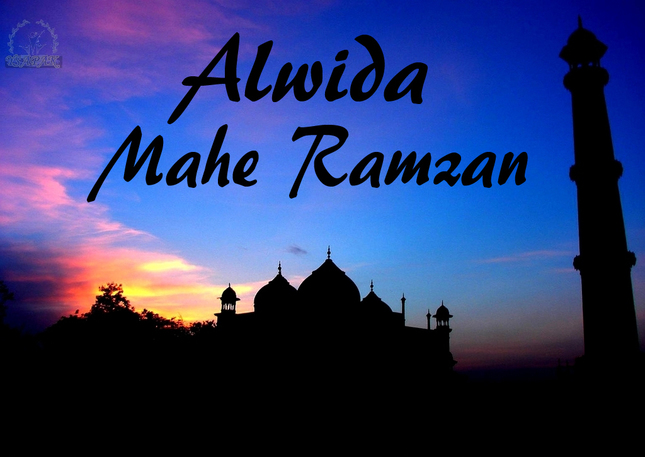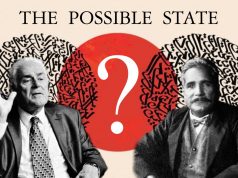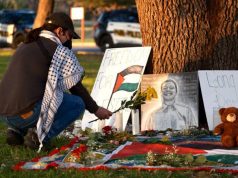Fasting in Ramzan ripens in a person the real spirit of social belonging, of unity and brotherhood, and of equality before Allah. This spirit is the natural product of the fact that when people fast they feel that they are joining the whole Muslim society (which makes up more than one fifth of world’s population) in observing the same duty, in the same manner, at the same time, for the same motives, and for the same end.
No sociologist or historian can say that there has been at any period of history anything comparable to this powerful institution of Islam: Fasting in the month of Ramzan. How does the fasting of Muslims in Ramzan differ from the fasting of other faiths? Fasting in the month of Ramadan is one of the Five Pillars upon which the “house” of Islam is built.
The purpose of the fast is to help develop self-restraint, self-purification, God-consciousness, compassion, the spirit of caring and sharing, the love of humanity and the love of God. The Islamic Fast, as opposed to mere starvation or self-denial, is an act of worship and obedience to Allah, thanksgiving, forgiveness, spiritual training, and self-examination. For me, Ramzan is a spiritual and moral summoning to re-examine my life’s mission: to be a more thoughtful human being through reflection and introspection and to increase my love for the creator and thus should be for others.
It is the month where the food, sustenance and the earnings of a muslim increases and they are blessed,” says the Prophet Muhammad (peace be upon him), a man who was known for his noble humanitarian causes, for social justice, and for being the first to respond to other’s needs, despite the fact that he himself lived a very simple and humble life.
We should also understand the practicality of the Ramzan month that we live in a country where every kind of food is available, yet hunger and food uncertainty remain hard realities, resulting for many in the health contradiction of hunger and obesity — serious issues that deserve more attention.
Food is a blessing, and during Ramzan Muslims tend to eat more nutritious foods in smaller quantities — something we should be doing throughout the year because it’s not how much you eat, but what you eat.
Real purpose of the dynamic institution of Fasting is to discipline our soul and moral behavior, and to develop sympathy for the less fortunate, it is a multi-functional and a comprehensive tool of change in various spheres of our lives, including: social and economic, intellectual and humanitarian, spiritual and physical, private and public, personal and common, inner and outer all in one!
It cultivates in us the principle of sincere Love, because when we observe Fasting, we do it out of deep love for Allah. And a person, who loves Allah, truly is a person who knows what love is and why everyone on this Earth should be loved and treated justly, for the sake of Allah.
A fasting person empties his stomach of all the material things: to fill his soul with peace and blessings, to fill his heart with love and sympathy, to fill his spirit with piety and Faith, to fill his mind with wisdom and resolution.
In the month of Ramzan, many Muslims try to avoid watching TV, listening to music, and some other leisure activities, which spares them more time and energy to be spent on more productive activities such as academics, intense knowledge exercise, voluntary prayers, social and humanitarian causes, and a quality time with the family, to name a few.
It is a reminder of our duty to Allah, our purpose and higher values in life, as Allah Himself describes the purpose of fasting as follows, “O you who Believe! Since we know that Fasting is a special duty prescribed by Allah, we learn that any sins may spoil our record of fasting with Allah, so we go through great lengths making sure we are on our best behavior.”
Many people who experience fasting in this month, feel the impact that this intense training has on their habits, and realize the power of this transformative tool designed to make us better human beings- the ultimate goal of any spiritual exercise.
After the month of Ramadan is over, Muslims celebrate one of the two most important holidays in the Islamic year: EID-UL-FITR, or the Festival of the Fast Breaking.
In this modern world, Ramzan gives Muslims an opportunity to reflect and free themselves from all kinds of distractions. Practicing Ramadan has become more challenging because of growth and advancement of technology. Prayer and reflection often take a back seat to give way to modern forms of entertainment.
Ramzan is all about sacrifice and self-control. Some believe that the faithful should focus on reflection and intense prayer by staying away from all kinds of distracting and tempting elements including technology and media. But many are addicted to television serials that they cannot miss out any of them though it is Ramzan month. As soon as the fasting is over the fingers move towards switching on television.
In a nutshell, even though the real purpose of the dynamic institution of Fasting is to discipline our soul and moral behavior, and to develop sympathy for the less fortunate, it is a multi-functional and a comprehensive tool of change in various spheres of our lives, including: social and economic, intellectual and humanitarian, spiritual and physical, private and public, personal and common, inner and outer all in one!
At the end of the day, Ramzan can benefit all people and the society we live in. Despite the physical toll of fasting, our hearts and spirits can find comfort in completing a moral exercise that pleases God and benefits humanity.







I read the article with interest. The writer has reflected what is required today and to celebrate the ramadan feast in a write manner.